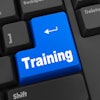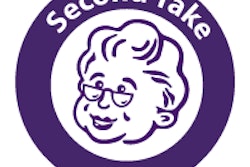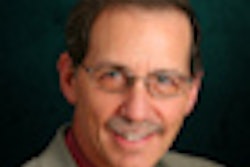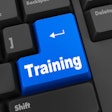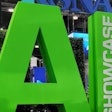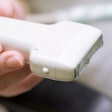Reactions have been mixed to a CNN article published online last week that describes doctors' widespread use of "recalls" -- banks of test information gathered by residents who have memorized questions -- on the exam they take to become board-certified in radiology.
While some radiologists feel that using recalls is synonymous with cheating, others say it is a common practice and is part of residents' learning process.
The use of recalls is not limited to a few radiology programs; it's ubiquitous, according to CNN, and occurs despite the fact that radiology residents must agree not to share test material before taking the exam. Radiology residents whom CNN interviewed said they promised to memorize questions and write them down after the test for use by future residents.
But controversy has erupted within the radiology community, with many radiologists taking issue with what they felt was a hard line taken by American Board of Radiology (ABR) officials in the CNN article against the use of recalls. Many have felt that the ABR has turned a blind eye to recalls for years, and has only recently begun cracking down on the practice.
Complaint filed
CNN's investigation was prompted by a complaint filed with the ABR by Dr. Matthew Webb, an Army captain trained at the San Antonio Uniformed Services Health Education Consortium. The recalls CNN obtained include at least 15 years' worth of questions and answers, the news agency said. CNN cited Dr. Gary Becker, ABR's executive director, as saying that about half of the questions included in the radiology board exam are the same from year to year.
Becker responded to CNN's coverage with a statement posted on ABR's website.
"Today we live in a world of instant information sharing and are aware that recalled test questions have been passed around and used not only to guide study, but at least by some to memorize exact questions and answer options, so as to increase chances of passing when these questions were encountered again on future examinations," Becker said. "The latter is a violation of ABR rules and constitutes cheating on the examination."
But this situation is in the past, Becker said, and it involved the written qualifying examinations that are taken in residency, not the ABR's certifying examinations that serve as the final assessment in the certification process at the completion of residency training.
"We cannot change the past," Becker said. "But we can prepare well for the future. Since December of 2007, ABR staff, volunteers, and the ABR Board of Trustees have been working tirelessly to produce our computer-based core and certifying exams that ABR will begin to use next year. These new tests will assess the doctors' abilities to actually interpret imaging studies and perform image-guided procedures rather than just memorize facts."
The ABR also posted a statement on exam security from the American Board of Medical Specialties (ABMS), which says that "upholding public trust is one reason ABMS takes exam security very seriously" and that the ABMS supports exam security through identifying cheating, changing test questions, strengthening security of testing sites, auditing exam security, and designing a rigorous certification process.
"It should be made abundantly clear that recalling and sharing questions from exams violates exam security, professional ethics, and patient trust in the medical profession," ABMS said in its statement. "When it happens, the practice should be addressed swiftly and decisively."
Ubiquitous practice
Using exam data in this way has been going on for decades -- not just in radiology, but in all specialties, according to Dr. Leonard Berlin, vice chair of radiology at NorthShore University Health System.
"It's unfortunate that the word 'cheating' is all over the place [in regards to this situation]," Berlin told AuntMinnie.com. "Do residents use information from previous tests? Sure they do -- it's part of the system. I don't think there's an academic center in the country that doesn't have a file, although it may not be a public one. For ABR to accuse radiologists of cheating -- well, they're coming on rather strong. [Using old test information] is just the way it is, the way we educate ourselves. It may not be ideal, but it's the standard. Now if someone burglarizes the ABR and gets copies of an exam, that's different."
With that being said, it would behoove the ABR to consider what to do going forward, Berlin said. ABR plans to discontinue oral exams, instead using computerized core exams that will replace the qualifying written exam.
"The ABR should reconsider their decision to eliminate the oral component of the board exam," he said. "There's an advantage to oral boards -- they give the examiner a different perspective on a candidate's degree of knowledge and professionalism."
Others emphasized that using recalls is just wrong. In an editorial published January 13 on AuntMinnie.com, Dr. Jannette Collins, chair of radiology at the University of Cincinnati College of Medicine, wrote that although there has been intense debate among residents regarding the recent policy changes on sharing ABR exam items, eliminating the practice goes "to the heart of maintaining professionalism in radiology."
"I strongly feel that when a resident agrees in writing to abide by the policy, any breach of that policy is unethical, unprofessional, and unacceptable," Collins wrote.
Is the ABR at fault?
If the practice of using recalls is cheating, and the ABR has known about it, as Becker acknowledged in the CNN story, some posters on AuntMinnie.com's Forums are wondering why the ABR hasn't taken measures to stop it.
"The answer Becker gave meant he called every radiologist who used recalls to take that exam a cheater," one poster wrote. "We all know approximately what percentage of practicing radiologists that is. [And] Becker acknowledges in the article [ABR] knew this was going on for years. If they thought it was truly cheating, why didn't they take measures to stop it years ago? Why did they continue to use an exam that utilized 50% recalled questions if they were concerned about the use of recalls? In fact, ABR board members have encouraged their residents to use recalls, and have been quoted on recalls sets as giving the correct answers to recalled questions."
The best approach would have been to outline how the practice was condoned for decades because it was perceived as a valid study method, according to another Forum poster.
"The ABR never published any sort of study guide. They tacitly approved the recall practice because it became the practical exam study guide," the poster wrote. "Making a more reasoned statement like this would have allowed the thousands of practicing radiologists out there who used recalls not to be described as cheaters. However, this approach would have made the ABR look bad."



